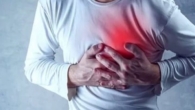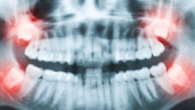
How to drink instant coffee without harm to health
Everything you wanted to know about instant coffee, but were too shy to ask!
Buy a cup of cappuccino in a beautiful coffee shop and take a walk with it it is very pleasant to work. Like talking to a colleague by the coffee maker. Or enjoy the aroma of freshly ground coffee.
But what to do if there is no coffee shop nearby, you never stand over a coffee machine, the coffee maker is left in the office, and you only see your colleagues through video communication?
Instant coffee will help!
In some countries, instant coffee accounts for more than half of all consumption. And this is not surprising – such coffee is prepared quickly and simply, and it is not too expensive.
But how “real” instant coffee is? Is it good for invigorating? Is it harmful to health? Let's tell you everything you need to know about instant coffee!
How is instant coffee made?
Instant coffee is created using approximately the same technology as bouillon cubes – ground beans are brewed for a super-concentrated drink, after which all moisture is removed from it.
Dehydrated coffee extract is turned into a powder or small flakes of instant coffee.
There are two main ways to dehydrate the extract:
- Spray drying.The extract is sprayed in hot air in small droplets, which very quickly turn into a dry powder.
- Sublimation drying. The coffee extract is frozen and cut into small pieces, which are dried in a vacuum at a low temperature.
Both methods preserve the quality, aroma and taste of coffee.
Voila! Instant coffee is ready.
Pour it with boiling water and enjoy your morning dose of caffeine!
Classic coffee contains antioxidants. Are they stored in instant coffee?
Yes!
There is a study that suggests that instant coffee may contain even more antioxidants than other beverages because of the way it is produced.< /p>
In addition, one cup of instant coffee contains only 7 calories, plus potassium, magnesium and niacin (vitamin B3).
How much caffeine is in instant coffee? >
However, instant coffee usually contains slightly less caffeine than brewed coffee.
A cup of instant coffee (with one teaspoon of powder) can contain from 30 to 90 milligrams of caffeine. And a cup of regular coffee – from 70 to 140 milligrams.
We all have different sensitivity to caffeine, so instant coffee can be a good option for those who should reduce their consumption of stimulants for one reason or another.
There are varieties of instant coffee without caffeine.
Of course, some of the active substance will still remain there, but no more than a milligram per cup.
How dangerous is excess caffeine ?
- Increased anxiety
- Sleep disturbance
- Anxiety
- Tremor
- Rapid heartbeat
Can instant coffee harm your health?
Only if you chew the dry powder with spoons.
Acrylamide is present in both instant and regular coffee. It's a potentially harmful chemical that's produced when coffee beans are roasted.
It's also quite common in smoke, food, household items, and personal care products.
Excessive exposure to acrylamide can damage the nervous system and increase the risk of cancer.
So you can't drink coffee?
You can!
Although scientists have found that instant coffee can contain up to twice as much acrylamide as freshly roasted coffee, the amounts of this substance are negligible.
Even if you add up all the acrylamide you can get through food, drink or household items, the total amount will still not be enough to cause harm to health.
Can coffee improve health?
Apparently yes!
Instant coffee contains the same antioxidants and trace elements as regular coffee, so it is also useful.
Here is how instant coffee can help the body:
- Improving brain function. Caffeine can accelerate cognitive processes.
- Acceleration of metabolism. Caffeine can increase metabolism and help our body burn more fat.
- Reducing the risk of diseases. Coffee can reduce the risk of neurodegenerative diseases such as Alzheimer's and Parkinson's diseases.
- Reduced risk of diabetes. Drinking coffee can reduce the risk of developing type 2 diabetes.
- Improving liver health. Coffee in general and caffeine in particular may reduce the risk of liver diseases such as cirrhosis and cancer.
- Improved mental health. Scientists have found that coffee helps reduce the risk of depression and suicide.
- Extending longevity. Coffee can help us live longer!
It's important to keep in mind that many of these studies were observational, and more research is needed. Studies have not proven a direct effect of coffee on reducing risks – only that people who drank coffee were less prone to diseases.
How much instant coffee can you drink?
< p>Everything is very individual, but scientists recommend limiting yourself to 3-5 cups a day.
Listen to yourself and reduce the amount of caffeine you consume if you notice the signs of its excess, which we talked about above.
Will instant coffee help with headaches?
There is no single right answer.
Coffee can both relieve a headache and make it worse, moreover, in the same person at different periods of time.
When coffee relieves pain:
If the pain is caused by dilation of blood vessels in the brain, caffeine can help. It will cause a spasm and reduce painful swelling.
Also, coffee can relieve tension headaches by relaxing spasmed muscles in the neck or back of the head.
But it's not easy here – excess caffeine can increase overexertion muscles!
When coffee makes the pain worse:
Sometimes it does it without “any reason”, even if it helped before.
< p>People with a high sensitivity to caffeine should be especially careful, for them the increase in pain due to cups of coffee is especially likely.
The problem can also be aggravated by sweet coffee with flavored syrups.









Leave a Reply